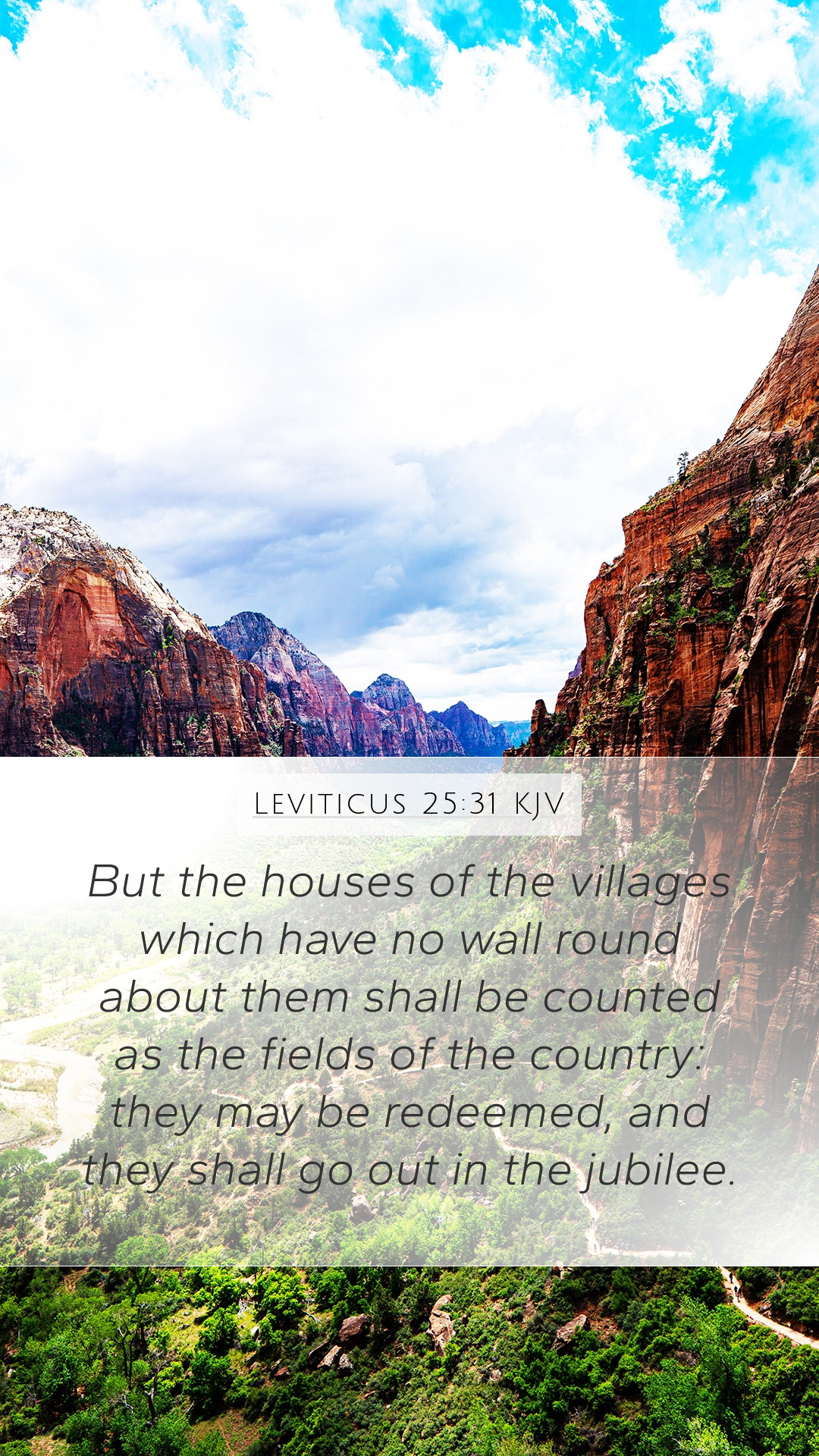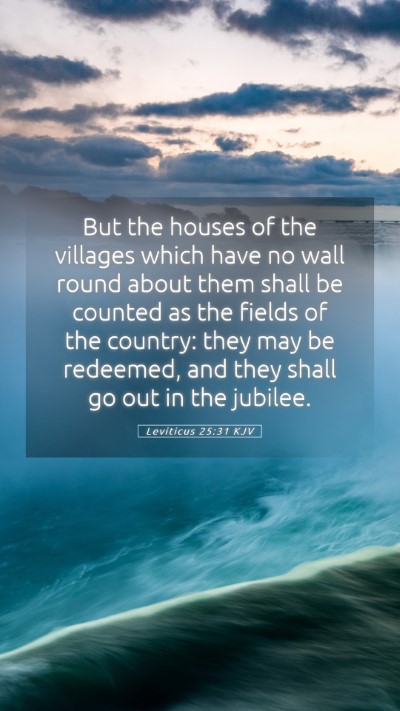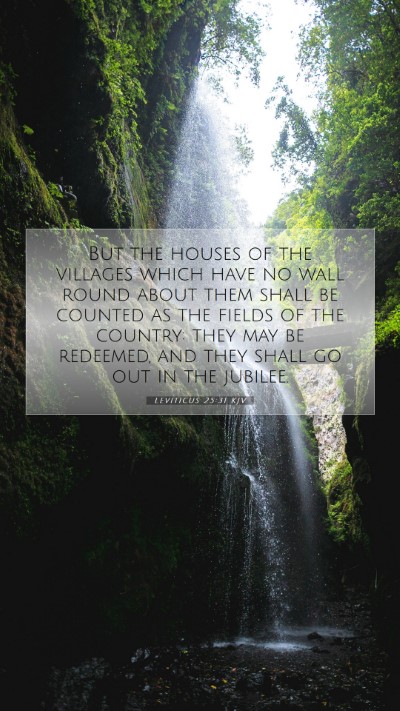Bible Verse Meaning and Interpretation of Leviticus 25:31
Leviticus 25:31 states: "But the houses of the villages which have no wall round about them shall be counted as the fields of the country: they may be redeemed, and they shall go out in the year of jubilee." This verse offers profound insights into the principles of property rights and social justice within the Israelite community.
Understanding the Context
The context of this verse lies within the broader framework of the Jubilee year, a time established by God for the restitution of land and the liberation of individuals from debts and servitude. The provisions mentioned demonstrate God's concern for the well-being of His people and the equitable distribution of resources.
Bible Verse Explanations
Public domain commentaries provide a rich understanding of this verse:
- Matthew Henry's Commentary: Henry emphasizes the importance of recognizing the distinction between fortified cities and unprotected villages. The implication is that while fortified cities represent wealth and security, unprotected villages remind us of the vulnerability of poorer individuals. God’s laws aim to ensure accessibility and fairness in property ownership.
- Albert Barnes' Notes: Barnes points out that cities without walls symbolize a less secure form of ownership and therefore have different redemption rights. The emphasis on villages reflects a broader concern for social equity. The provisions were not just legalities; they were meant to foster community ethics and responsibility.
- Adam Clarke's Commentary: Clarke elaborates that this verse aligns with God’s intent to prevent the accumulation of excessive wealth in one area while neglecting others. It ensures that land remains a communal resource and not merely a private commodity, fostering a sense of community among the Israelites.
Significance of Leviticus 25:31
This verse is significant for various reasons:
- Social Justice: It showcases God’s intent to protect the rights of the less fortunate.
- Divine Ownership: It reinforces the idea that all land ultimately belongs to God, and humans are mere stewards.
- Community Responsibility: It stresses the duty of the community to care for each member, ensuring they do not fall into despair due to financial burdens.
Applications in Daily Life
Understanding this verse can lead to insightful applications:
- Promoting Fairness: Strive to promote equity in all dealings, ensuring that vulnerable members of society receive support.
- Recognizing Shared Blessings: Appreciate that what we have is a trust from God and should be used for the good of all.
- Engaging in Community: Take an active role in community welfare, echoing the responsibility depicted in this scripture.
Cross References
To further enhance understanding, consider these related verses:
- Exodus 21:2 - Discusses the release of Hebrew servants in the Jubilee year.
- Leviticus 25:10 - Establishes the year of Jubilee and its significance.
- Numbers 36:9 - Addresses inheritance issues among the tribes of Israel, tying to land ownership principles.
Conclusion
In summary, Leviticus 25:31 offers a counsel of equity and social justice, highlighting the importance of divinely mandated structures that encourage communal welfare. Understanding this verse through comprehensive Bible verse commentary enhances our appreciation of God's laws and their applications in our lives today.


